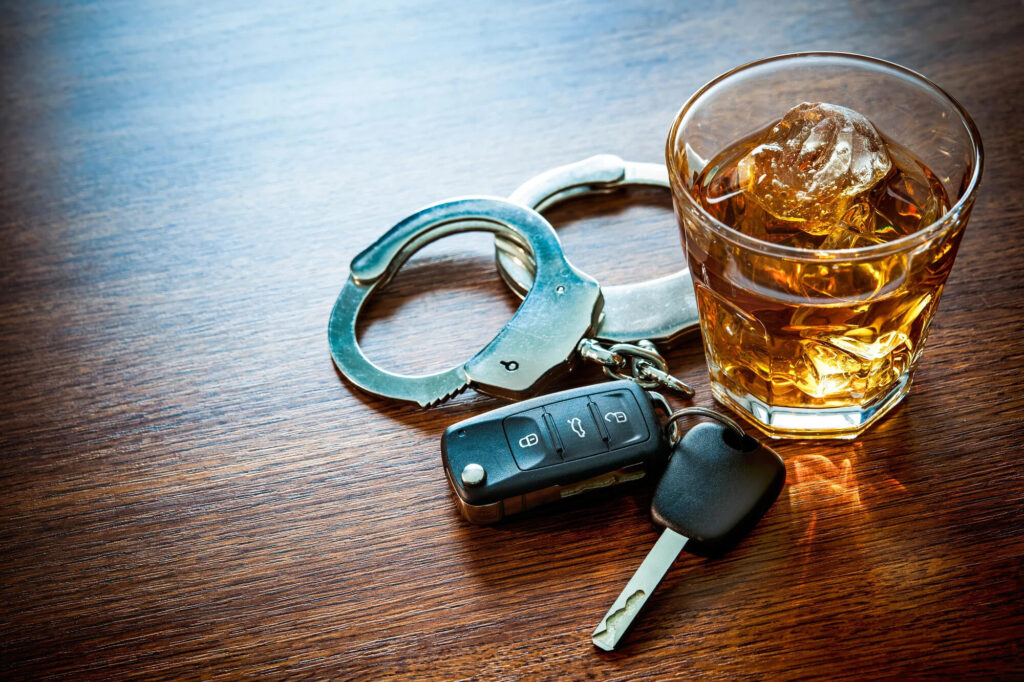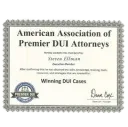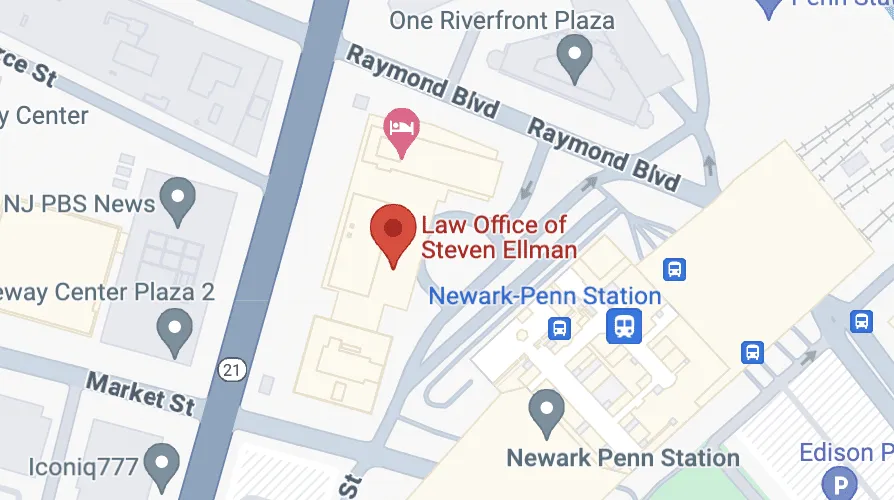Is a DUI a Criminal Offense in New Jersey?
It’s vital to understand the severity of one’s actions when drunk driving. For those asking, “Is a DUI a criminal offense?” Get answers and legal guidance here.
When the flash of red and blue lights catches you by surprise on a quiet drive home, your heartbeat skyrockets. Suddenly, the evening’s choices come into sharp focus, posing a pressing question: is a DUI a criminal offense? This moment, fraught with anxiety and uncertainty, could redefine your future in ways you never imagined.
Understanding the severity of a DUI in New Jersey isn’t just about legal consequences. It’s about grasping how a single decision can alter the course of your life.
This article aims to demystify the legal fog surrounding DUI charges. Continue reading to unlock crucial insights that could not only save you from common pitfalls but also empower you to navigate this challenging scenario with confidence.
DUI in New Jersey
In New Jersey, Driving Under the Influence (DUI) refers to operating a motor vehicle while your ability to do so safely is impaired by alcohol or drugs. This definition is broad, encompassing not only alcohol but any substance that can affect your driving. New Jersey’s DUI laws are among the strictest in the nation, reflecting the state’s commitment to road safety.
The legal limit for blood alcohol concentration (BAC) in New Jersey is 0.08% for drivers of legal drinking age. Commercial drivers have a lower threshold, with a BAC limit of 0.04%, recognizing the greater responsibility they carry. For drivers under 21, New Jersey enforces a zero-tolerance policy, where any BAC above 0.01% can lead to a DUI charge.
This stringent approach aims to discourage drunk driving across all age groups. It reflects an understanding of the disproportionate risk younger drivers face when combining inexperience with impairment.
Exceeding these BAC limits can result in severe penalties, including fines, license suspension, and even jail time. The consequences escalate with repeated offenses, underscoring the state’s aim to deter recurrent DUI incidents.
For a first-time offender, the ramifications might involve a fine and a temporary suspension of driving privileges. However, for a second or third-time offender, the penalties become significantly harsher. It can include longer jail terms and extended license suspension periods.
The Legal Consequences of a DUI
When someone gets caught driving under the influence in New Jersey, they face a series of legal penalties. These consequences get more severe with each offense. Let’s break down what happens after a DUI arrest, from the first offense to becoming a three-time offender.
First-Time Offender
If it’s your first run-in with a DUI, the consequences are serious but designed to be somewhat lenient. The aim is to correct behavior rather than punish too harshly.
For those with a blood alcohol concentration of 0.08% to 0.10%, the law dictates:
- A fine of $250 to $400
- Up to 30 days in jail
- A loss of driving privileges for three months
Additionally, you’ll need to attend classes at an Intoxicated Driver Resource Center (IDRC) and may be required to install an ignition interlock device in your vehicle. This device prevents the car from starting if alcohol is detected on the driver’s breath.
Second-Time Offender
The stakes rise significantly for a second-time offender. If you’re caught a second time, you’re looking at:
- A fine of $500 to $1,000
- Jail time of at least 48 hours and up to 90 days
- A two-year suspension of your driving privileges
The requirement for an ignition interlock device extends for the duration of your license suspension and up to three years after getting your license back. New Jersey wants to make sure the lesson is learned well before you’re back on the road.
Three-Time Offender
By the time someone becomes a three-time offender, the state considers their behavior a serious and recurring threat to public safety. The penalties reflect this stance, with a hefty $1,000 fine, up to 180 days in jail, and a ten-year loss of driving privileges.
The ignition interlock requirement also applies, showcasing the state’s consistent effort to curb drunk driving through technology.
Is a DUI a Criminal Offense?
When someone in New Jersey gets pulled over and charged with driving under the influence, one of their first questions might be about the nature of the charge. Is it a criminal offense or something else? Let’s clear up the confusion surrounding this critical question.
DUI: Traffic Violation or Criminal Charge?
In New Jersey, a DUI is primarily considered a serious traffic violation rather than a criminal offense. This classification means that, for most first-time and simple DUI offenses, you won’t end up with a felony charge on your record.
However, this doesn’t mean the offense is taken lightly. The consequences of a DUI, as outlined in previous sections, are severe and designed to discourage drunk driving.
When Does a DUI Become More Serious?
There are specific circumstances under which a DUI could escalate to a more serious charge. For instance, if a DUI incident results in an accident that causes significant property damage, injuries, or even fatalities, the charges could be elevated. In such cases, what starts as a traffic violation could lead to felony charges, significantly impacting the driver’s criminal record.
A DUI can also become a more severe issue if it involves additional factors, such as:
- Driving with a suspended license
- Having a particularly high blood alcohol concentration
- Being a repeat offender within a short period
These factors can complicate a DUI case, making it more likely for the offense to be treated with the gravity of a criminal act.
The Impact on Your Criminal Record
While a simple DUI in New Jersey might not result in a felony charge on your criminal record, it’s crucial to understand that the offense is still a serious matter. A DUI conviction can lead to consequences that affect your driving privileges, financial situation, and reputation.
Therefore, it’s important to take any DUI charges seriously and consider the potential long-term impact on your life.
The Importance of Legal Representation
Facing a DUI charge in New Jersey can be overwhelming. The laws are complex, and the stakes are high. This is where the importance of legal representation comes into sharp focus.
A qualified DUI defense attorney is not just a legal advisor but a crucial ally who can navigate the intricate legal system and advocate on your behalf.
Why is having a lawyer so important? First, the legal system can be confusing and intimidating for those not familiar with it. An experienced attorney understands the nuances of DUI laws, including recent changes and how they can impact your case.
They can challenge evidence, negotiate with prosecutors, and, if necessary, represent you at trial. Without this expertise, you might miss opportunities to minimize the consequences of a DUI charge.
Moreover, the consequences of a DUI go beyond just court appearances and fines. They can affect your driving privileges, employment opportunities, and even your insurance rates.
An adept DUI defense attorney will not only fight for a favorable legal outcome but also guide you through processes to potentially restore your driving privileges or seek alternatives to jail time.
Legal representation can also offer peace of mind during a stressful time. Knowing you have an expert who is looking out for your best interests can alleviate some of the anxiety that comes with facing a DUI charge.
How to Choose a DUI Attorney
Choosing the right DUI attorney is a decision that could significantly affect the outcome of your case and your future. Here are key factors to consider when searching for an attorney to represent you in a DUI case.
Look for Experience
An experienced DUI attorney will have a deep understanding of DUI laws and a familiarity with the court system in your area. They should have a proven track record of handling DUI cases similar to yours. Experience matters because it means your attorney will know the strategies that work best in negotiations and at trial.
Evaluate Their Success Rate
Ask potential attorneys about their success rates in handling DUI cases. While no attorney can guarantee a specific outcome, those with a history of favorable outcomes for their clients are likely to have developed effective strategies for dealing with DUI charges.
Communication is Key
Your attorney should be someone you feel comfortable talking to and who communicates clearly about your case. They should be responsive to your questions and provide straightforward explanations about your legal options, the process ahead, and any potential outcomes.
Check Client Testimonials and Reviews
Client testimonials and reviews can provide insights into an attorney’s performance and how they treat their clients. Look for an attorney who is highly regarded for their professionalism, empathy, and dedication to their clients’ needs.
Your Path Forward
Is a DUI a criminal offense? The takeaway is clear: a DUI, while not a felony, carries significant legal consequences that can impact your life and livelihood. At the heart of securing a positive outcome is choosing a defense attorney equipped with experience, dedication, and a track record of success.
The Law Office of Steven Ellman stands out as a beacon of hope for those facing DUI charges. We offer a blend of aggressive legal representation and compassionate guidance. Reach out to us for a free consultation if you find yourself in the throes of a DUI dilemma.














